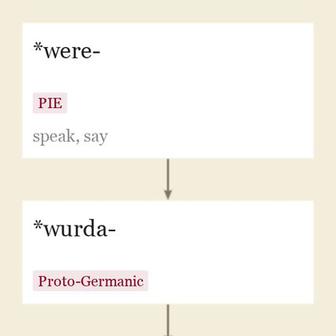swear-word n.
1873, American English colloquial, from swear (v.) + word (n.).
Entries linking to swear-word
Old English swerian "
Also related to the second element in answer. The secondary sense of "
[Swearing and cursing] are entirely different things : the first is invoking the witness of a Spirit to an assertion you wish to make ; the second is invoking the assistance of a Spirit, in a mischief you wish to inflict. When ill-educated and ill-tempered people clamorously confuse the two invocations, they are not, in reality, either cursing or swearing ; but merely vomiting empty words indecently. True swearing and cursing must always be distinct and solemn .... [Ruskin, "Fors Clavigera"]

Old English word "
The meaning "
It is dangerous to leave written that which is badly written. A chance word, upon paper, may destroy the world. Watch carefully and erase, while the power is still yours, I say to myself, for all that is put down, once it escapes, may rot its way into a thousand minds, the corn become a black smut, and all libraries, of necessity, be burned to the ground as a consequence. [William Carlos Williams, "Paterson"]
updated on October 10, 2017